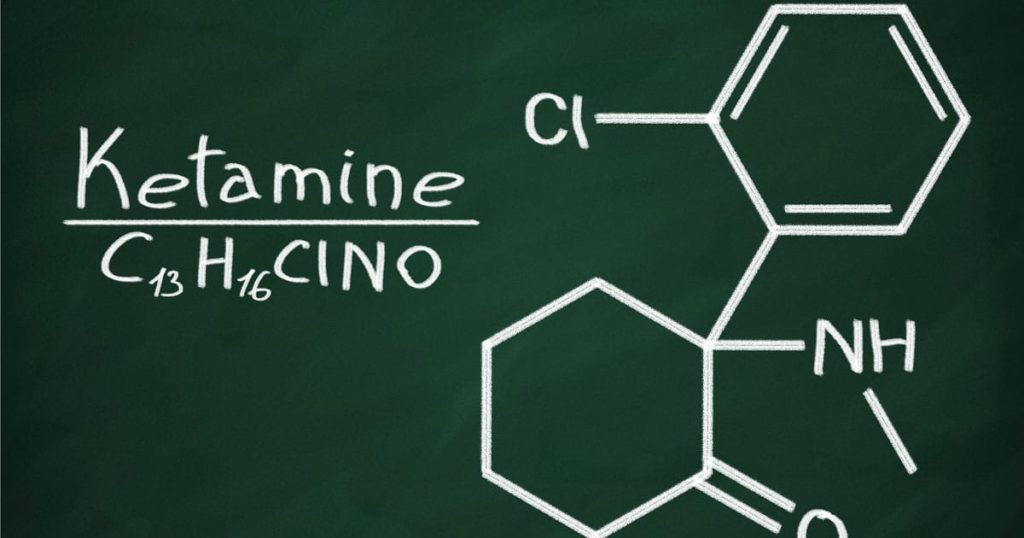Ketamine is an anesthetic that has been used primarily in pediatric surgical settings and veterinary medicine. An interesting property of ketamine is that it affects a set of receptors utilizing glutamate in the central nervous system and brain that govern mood, memory, learning and other functions. This discovery of ketamine’s effects has led to a growing body of research that aims to harness it as a therapy for a variety of mental health disorders, including:
#1 Treatment-Resistant Depression
In recent years, ketamine has been used to treat severe depression where a patient is despondent or suicidal. This use of ketamine stems in part from a successful 2012-2014 ketamine clinical trial led by Yale-New Haven Hospital’s chief psychiatrist John Krystal, MD. The trial revealed the drug’s rapid antidepressant benefits. Currently, a few other leading mental health treatment centers offer ketamine depression therapy as well and report positive results. Ketamine is typically administered by intravenous infusion, or IV, and the dosage used to treat severe, treatment-resistant depression is relatively small compared to the dosage when used as an anesthetic. The “magic” of ketamine as a treatment for depression, according to psychiatric specialists who work with patients in acute distress, is that the drug’s positive effects are felt within a few short hours rather than after days or weeks, as often happens with antidepressant medications. Some physicians will prescribe antidepressants and ketamine simultaneously at the beginning of depression treatment, with the idea that ketamine will be used for only a few days to help elevate mood until the more delayed benefits of antidepressants “kick in.”
#2 Alcoholism
Ketamine has been found to disrupt the formation of memories by blocking N-methyl-d-aspartic acid, or NMDA, a brain receptor that helps control brain plasticity and memory function. This property in the drug leads scientists to believe that ketamine might be useful in erasing or re-programming memories related to addiction and other destructive behaviors. For many alcoholics, certain memories, sensations, places and situations — or even seasons and specific times of day — can trigger the desire to drink. For example, returning home at the end of a hard day at work may be a habitual trigger for the urge to drink. Researchers are considering the possibility of manipulating an addiction trigger like this by exposing an addict to the trigger, then giving them a dose of ketamine to help weaken the memory of it, and then destabilizing or erasing the memory through controlled retraining sessions. A study that tests this theory is underway in the United Kingdom, led by psychopharmacology researchers at University of Exeter and University College London (UCL). According to the research team in the Exeter and UCL study, people with alcohol dependency often can abstain from using in the short term while undergoing treatment in a hospital or other treatment facility, but when they are exposed to environmental triggers after treatment they encounter problems with lasting, long-term recovery. It is thought that ketamine used in combination with extinction therapy (memory retraining sessions to unlearn associations that drive the desire to drink) will further help addicts to let go of these addictive associations. Ketamine may also be a pharmacological strategy for treating alcohol-withdrawal-induced mood disorder (depression). According to the researchers of a study published in the January 2016 issue of Neuropsychopharmacology, the study of ketamine as a treatment for alcoholism is important because alcohol use disorder and depression are highly comorbid, yet “treatment options for individuals with both conditions are lacking.”
#3 Post-Traumatic Stress Disorder
A study from Columbia University Medical Center has shown that ketamine may have potential as a prophylactic to prevent post-traumatic stress disorder, or PTSD. In this study, outlined in the January 2017 issue of Neuropsychopharmacology, researchers tested the hypothesis that administering a small dose of ketamine before exposure to a psychological trauma — as experienced by soldiers being deployed to combat zones, for example — can help head off a heightened fear response to the event. As with alcoholism and severe depression, there are very few fast-acting and effective treatments for PTSD. Although the researchers pursuing these various ketamine treatment studies don’t advocate the widespread use of ketamine as a long-term drug therapy, they seem to share the opinion that when used short-term in regulated doses in medical treatment settings, the drug may offer hope for alcoholics and others experiencing acute distress. More research is needed to determine appropriate dosing and treatment time frames to achieve optimal results for patients in the areas of alcohol addiction, depression and PTSD, but so far ketamine shows great potential benefit for a range of mental health disorders.



